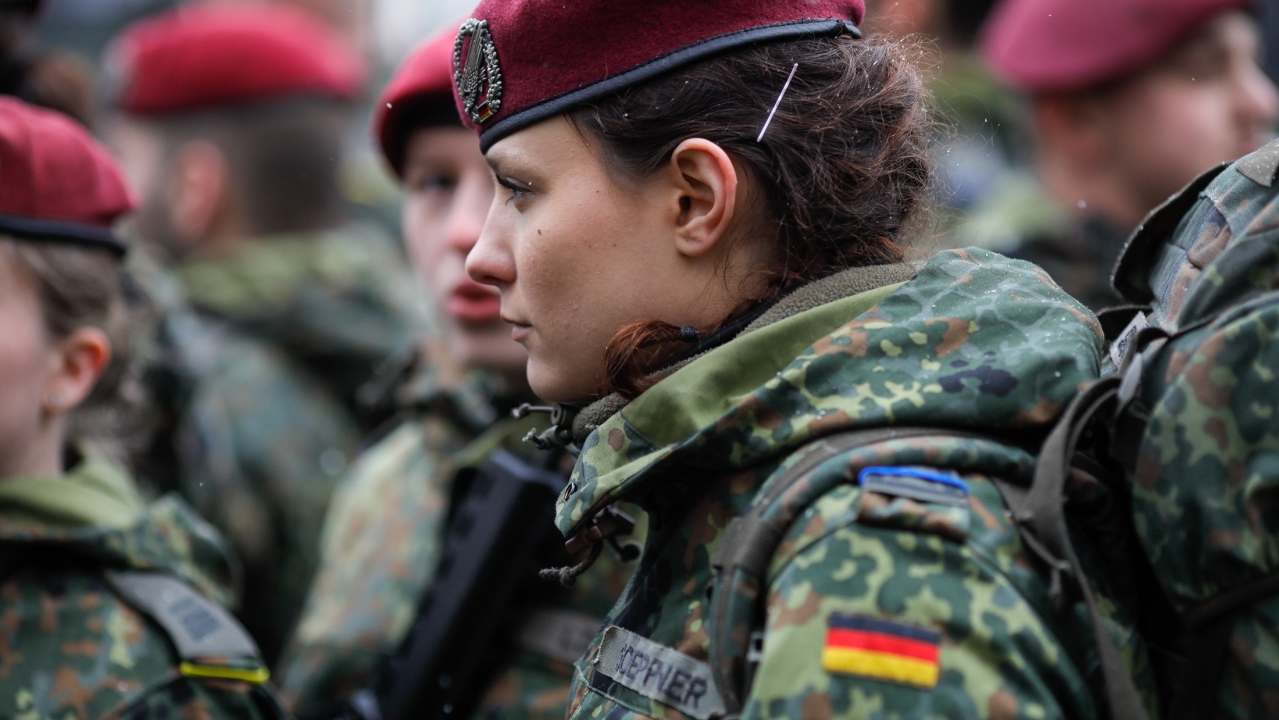On February 27th, three days after Russia’s invasion of Ukraine, Germany’s Chancellor Olaf Scholz announced a „watershed moment” („Zeitenwende”) for the country’s military. Historically conflict-averse and even unwilling to export weapons if there was a chance they might be used by anyone, Germany would now reinvent itself as a military power. The armed forces would receive 100 billion Euros to boost their combat power, modernize their equipment and increase their manpower.
Much has been written about the financial aspect: So far, there’s much less than meets the eye. More money isn’t really coming, and if anything, combat power has decreased as a consequence of equipment being given to Ukraine.
Less has been said about Scholz’ promise to build a larger army of 203.000 soldiers by 2031. It’s not really a new pledge. Such plans date back to the previous government, when Ursula von der Leyen – now head of the EU commission – was Germany’s defense minister. At the time, the aim had been to reach that goal by 2025. Then, 2027. Now, the deadline is 2031. Already, there are signs that there will be either another postponement or a downward revision of planned troop numbers.
Currently, Germany’s Bundeswehr numbers 183.000 personnel.
Technically, adding 20.000 soldiers within ten years means attracting 22.000 new recruits every year. Every year, around 20.000 soldiers are expected to quit for different reasons (age limit, expiring contracts) and will need to be replaced.
But less and less Germans want to join the army. The number of recruits shrank by 18 percent in 2020, to ca. 16.000. That trend has been exacerbated by the Ukraine war.
At the same time, more and more active soldiers want to get out of their contracts. The number of „Kriegsdienstverweigerer” requests (objectors of conscience) increased fivefold in 2022, compared to the previous year (950 instead of 200). That’s not a large number, but worryingly, soldiers who request to be released from service often argue that they „didn’t expect a war” when they joined the army. It’s a bit like applying for a job as a firefighter and then saying you didn’t know that the job included fighting actual fires.
That attitude is symptomatic of a society where only 18 percent of citizens say they would be ready to defend their country. In Europe, that is the lowest value for any country except the Netherlands (15 per cent). In comparison, half of Hungarian respondents say they would surely or probably fight, including a very high proportion of women (44 percent).
It is even more telling that „objection of conscience” even exists as an option in a country that abolished compulsory military service in 2011. No-one can be forced to join the army. The only way to get in is to truly want to get in. You need to apply for the job and, if found eligible after tests and a job interview, be accepted. Asking yourself whether your conscience will allow you to be a soldier should logically be part of anyone’s decisionmaking process beforethey apply. Or at least, before they accept. „Soldier” is a profession with a straightforward job description, after all.
Except that is not at all how the Bundeswehr has been describing the job. The lack of combat morale is (also) the result of a recruiting strategy that has focused on describing the Bundeswehr as a „modern employer” with all kinds of benefits and amenities, rather than a workplace where you may have to kill, and risk being killed, to defend your country. Now soldiers begin to realize that in case of a war, the army will not be a workplace where home office is an option.
Parallel to all this, Olaf Scholz’ leftwing government has focused on weeding out soldiers who are thought to be „rightwing”, including spying on what they say in online chats. Some opinion polls show that conservatives and citizens with a rightwing worldview are more willing to defend their country than liberals. That’s certainly true for Hungary, but even liberal and/or leftwing Hungarians would be more than twice as likely to fight than Germans on average.
Then there is the demographic problem. Germany’s society is ageing. There are less and less men of military age. For this reason, but also to improve its public image in an ever more ethnically mixed society, the Bundeswehr has actively sought to increase the number of soldiers with a non-German ethnic background. By 2016, 26 percent of privates (simple soldiers) already had at least one parent who was not born a German citizen. The ratio is much lower for officers (seven percent). Most of these soldiers with a „migrant background” come from Russian-German families. In 2019, the defense ministry also estimated that around 3000 soldiers were Muslims.
Beyond finding enough soldiers, the question is whether they would be willing to defend their country in case of a war. Germany has mismanaged and weakened its armed forces for decades.
There is strong support in German society for defending Ukraine. In January 2023, 41 percent of respondents said the level of German arms sales and donations to Ukraine was satisfying, another 25 percent said more was needed. But – as indicated earlier – only 18 percent of citizens say they would fight for their own country.










